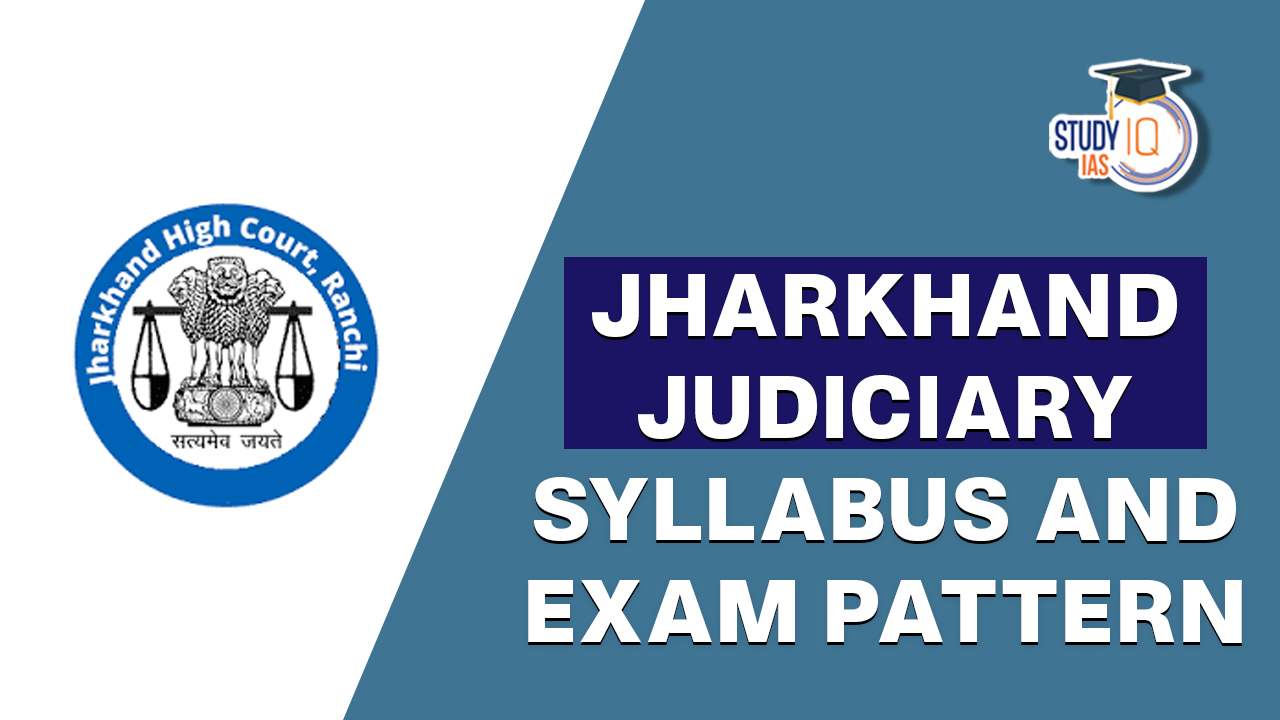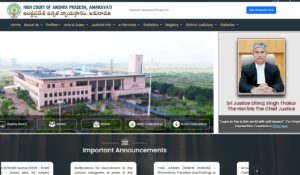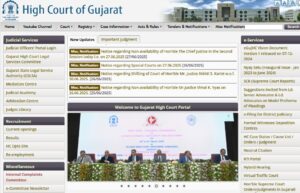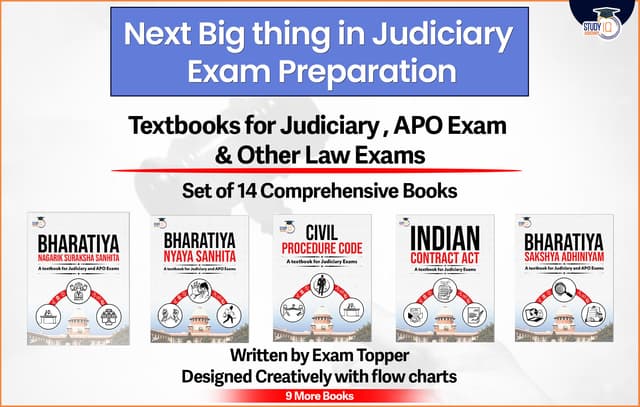Table of Contents
Jharkhand Judiciary Syllabus 2025
Jharkhand Public Service Commission (JPSC) conducts a rigorous three-stage selection process. The syllabus for the recruitment of Junior Division Civil Judges in the state is made public by the Jharkhand High Court. It is strongly advised to become quite familiar with the Jharkhand Civil Judge Syllabus 2025 to ensure efficient preparation for the judicial exams. This Jharkhand Judiciary Syllabus provides an in-depth overview of all the crucial topics that need to be covered for both the preliminary and main exams. This article delves into the Jharkhand Judiciary Syllabus 2025 and Exam Pattern, equipping you with the knowledge to excel in both the Prelims and Mains stages.
Jharkhand Judicial Services Exam Pattern 2025
Knowing the specifics, such as the questions, subjects, exam format, time, and total marks, is very beneficial to all applicants sitting the exam. This Jharkhand Judiciary exam pattern can help candidates succeed on the examination and get a feel for how the paper will be organized. Separate lists are provided for the main exam and preliminary exam formats. The syllabus and overview for the Jharkhand judiciary exam provide a basic description of the structure of the question paper as well as the number of questions and grading possibilities. In the Jharkhand Judiciary, there is No Negative marking. The Jharkhand Judicial Exam Pattern, which is detailed in the notification, includes written tests for the preliminary and main exams. The details are listed below:
- A total of 100 points will be awarded for the preliminary entrance test.
- The preliminary entrance test must be completed in two hours.
- For each incorrect response, there will be a negative marking of 1.
- Two papers will make up the Main Examination.
- Paper I carries 50 points, while Paper II carries 100 points.
Jharkhand Judiciary Syllabus 2025
A thorough understanding of the 2025 syllabus is necessary for candidates who want to succeed in the Jharkhand Judiciary Examination. This information serves as the cornerstone for a successful exam study strategy. Having a firm grasp of the material and using your time wisely might significantly improve your exam results. The Jharkhand Judiciary Judicial Service Syllabus 2025 should be your main resource if you’re interested in a career in the judicial public sector. This program properly prepares you for the challenges of the Jharkhand Judiciary PCS J examination thanks to its intensive focus on legal academics and skill development. The JPSC Exam is being conducted in three stages:
- Preliminary Examination (Objective Type)
- Mains Examination (Descriptive Type)
- Personal Interview (Viva)
| Particulars | Details |
|---|---|
| Organization | Jharkhand High Court (JHC) |
| Post Name | District Judge |
| Advertisement No. | 01/2024/Apptt. |
| Admit Card Status | Released |
| Admit Card Release Date | April 15, 2025 |
| Exam Date | April 27, 2025 (Sunday) |
| Mode of Examination | Offline (Pen & Paper Based) |
| Mode of Admit Card | Online |
| Official Website | jharkhandhighcourt.nic.in |
Jharkhand Judiciary Prelims Syllabus 2025
The purpose of the preparatory exam for the Jharkhand Judiciary 2025 is to gauge applicants’ general understanding of numerous legal topics. This test will take two hours to complete and will have a 100-point scoring system. Objective-style questions with multiple-choice answers will be given to applicants. This exam’s negative marking policy, which deducts one mark for each incorrect response, is a crucial component. Major subjects for the Jharkhand PSC J Prelims Exam have been mentioned below:
- General Knowledge (including Current Affairs): Here, aspirants will be tested on their awareness of general facts, historical events, and current happenings both nationally and globally.
- General English: This section will evaluate candidates’ proficiency in the English language, including comprehension, vocabulary, grammar, and sentence structure.
- IPC (Indian Penal Code): This subject encompasses the substantive laws relating to crimes and their corresponding punishments in India.
- CrPC (Criminal Procedure Code): This section focuses on the procedural laws concerning criminal matters in the country.
- CPC (Civil Procedure Code): This subject delves into the procedural laws related to civil matters in India.
- Law of Contract: This section will assess candidates’ understanding of contractual agreements, their formation, execution, and breaches.
- Evidence Act: This subject covers the rules and regulations related to the admissibility of evidence in court proceedings.
Jharkhand Judiciary Prelims Exam Pattern 2025
Candidates can check the Jharkhand Judicial Services Exam Pattern for the preliminary examination below in the table:
| Jharkhand Judicial Services Exam Pattern for Prelims Exam | ||
| Name of the Subjects | Number of Marks | Duration |
| General English | 100 | 2 hours |
| General Knowledge (including Current Affairs) | ||
| CPC | ||
| CrPC | ||
| Evidence Act | ||
| Law of Contract | ||
| IPC | ||
Jharkhand Judiciary Mains Syllabus 2025
The main examination for the Jharkhand Public Service Commission (JPSC) Civil Judge 2025 position is designed to be a thorough evaluation of applicants’ in-depth familiarity with numerous legal fields.
| Jharkhand Judiciary Main Examination Syllabus 2025 | |
| Papers in Mains Exam | Detailed Syllabus |
| JPSC Main Examination Syllabus Paper I |
|
| JPSC Main Examination Syllabus Paper II |
|
| JPSC Main Examination Syllabus Paper III |
|
| JPSC Main Examination Syllabus Paper IV |
|
Jharkhand Judiciary Main Exam Pattern 2025
Candidates can check the Jharkhand Judicial Services Exam Pattern for the mains examination below in the table:
| Jharkhand Judicial Services Exam Pattern Mains Exam | ||
| Paper | Name of the Subjects | Number of Marks |
| Paper – 1 | Procedural Law (Code of Civil Procedure and Code of Criminal Procedure), Indian Penal Code, Indian Evidence Act, Limitation Act | 100 |
| Paper – 2 | The Contract Act, The Sales of Goods Act, The Negotiable Instruments Act, The Arbitration and Conciliation Act, The Transfer of Property Act | 100 |
| Paper – 3 | Hindu Law, Mohammedan Law, Rent Control Law, The Specific Relief Act, Jurisprudence | 100 |
| Paper – 4 | Hindi & English (Essay, Precise writing, Translation & Paraphrase) | 100 |
| Total Marks | 400 | |
Jharkhand Civil Judge 2025 Interview
There will be a 100-mark Personal Interview test will be conducted. The minimum qualifying score for candidates in the general category who are taking the Personal Interview is 25% for candidates in the SC/ST/OBC/BC categories, it is 20%. No matter how well they performed on the Main Examination, a candidate will not be selected for an appointment if they get less than the minimum necessary marks in the Personal Interview. The final selection list will be made based on the outcomes of both the Main Exam and the Viva-Voce Test. If any candidates receive equal marks in the final selection list, they will be chosen based first on their educational background—a postgraduate degree in law is preferred—and then on any past experience in the practice of law.


 AP High Court Exam Date 2025 Out: Check ...
AP High Court Exam Date 2025 Out: Check ...
 Jharkhand High Court Assistants Admit Ca...
Jharkhand High Court Assistants Admit Ca...
 Gujarat Judiciary 2025 Solved Question P...
Gujarat Judiciary 2025 Solved Question P...












